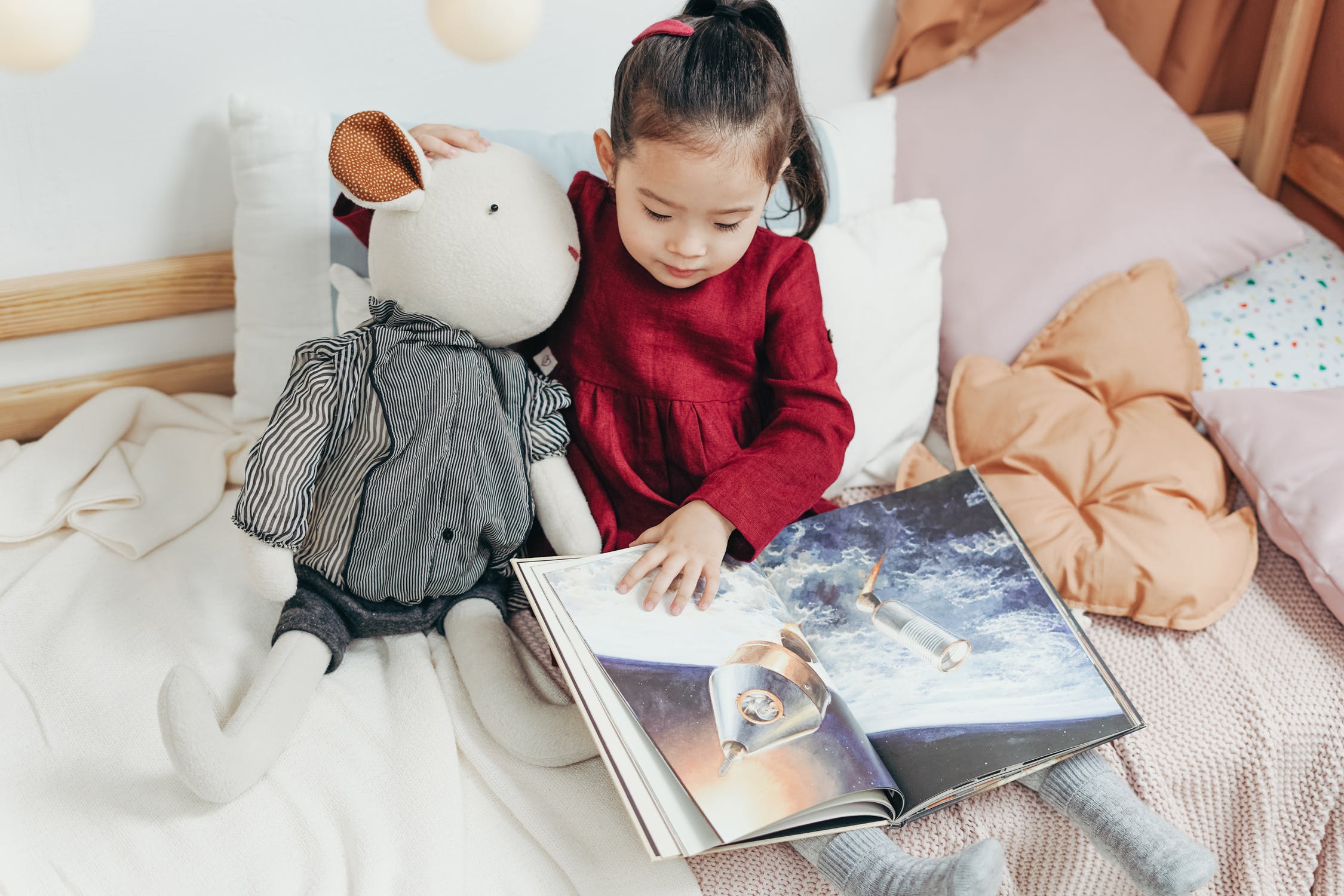When you get your child into music, you likely do it for one of several reasons. You might have been a musician or participated in music programs in school. Your child might want to follow in your footsteps and play your instrument, or you might regret not learning an instrument—therefore, you want your kid to have that experience.
One of the biggest selling points for music programs is that it “makes kids smarter” – which may not really be true, by the way. You can read a lot of research about how music can help kids achieve higher test scores and all that. However, most kids start with music when they are very small, and that means they are still learning to read.
The question remains—can learning music help your child read better? Many elementary music teachers incorporate reading into their lessons in fun ways, and some children’s books even include music as part of their structure (Pete the Cat comes to mind).
Read through these ideas so that you can decide if you believe music is going to help your child learn to read better. Every kid is different, but there is some science behind this idea. And if you’d like to learn more about piano lessons in West Chester, PA, please don’t hesitate to get in touch. I’d be happy to hear from you.
Music & Language Process Together
Music and language process in about the same place in the brain. This means, in most cases, you are exercising the reading part of your brain when you are doing music. Everybody is different, but science has shown that this is how our brains work. Plus, the music centers in your brain develop before the language centers. You are building your ability to read before you even have the faintest idea what reading is.
Think of it this way—babies can mimic rhythms and sounds long before they can read. However, those roads run parallel to one another. After all, reading is made up of sounds that you convert into understanding.
Music Training Typically Produces Better Readers
Music training is going to produce better readers in most cases. Music helps children learn how sounds are different, and they can translate that information into reading and other things that help them learn. This means that most people who have been learning music can quickly learn sounds, and these skills make it easier for kids to think about how sounds are similar. This can make reading comprehension better along with diction and speech.
Think of it this way—the words pen and pin basically sound exactly the same. However, a child with music training is more likely to realize that the word “pin” sounds a little bit sharper than “pen” because of the letters used. This is just one example, but it speaks to how learning about sounds and music makes reading and speech easier.
Studies have also shown that children who could keep a steady beat in a music class when they were three or four years old were more ready to read when they reached the age of five.
Reading Consistency Matters
Consistency is a big part of the process of helping kids learn to read. When you want to get your kids into music, you want them to be in a music class or lesson every week. These courses are a good way for kids to use instruments, train their ears, and learn sequentially. When a music course teaches kids with quality instruments and helps them learn in sequential order, they also know they must learn to read in sequential order.
The child is ready to learn how all the sounds work, how they go together, and how each letter can change in the English language. While this is a bit more advanced, kids can learn that two notes—Db and C#, for example—are the same but have different names. The same is true when kids are learning to read. They can learn that there are long and short sounds for each vowel. This means that kids can quickly process that the word “Axe” has a short “eh” sound, but the word “Ate” has a long “A” sound.
Consistency also helps at home when parents bond with their children by talking to them. While you do not need to speak the “Queen’s English” to your children when they are young, they are learning how to process language as you speak to them. Keep talking, reading, and giving your kids as much information as you can.
Starting Music Today Helps Kids Process Speech & Language
You cannot make your kids into perfect readers simply by playing them music and putting them in music lessons. However, you can give them a head start when allowing them to learn music and take music lessons. You can help your child build the essential skills they need for reading, and they will progress faster as they go from Pre-K to Kindergarten and into First Grade. You also set your child up for a lifetime of enjoyment if they are learning music from an early age.
Sources:
